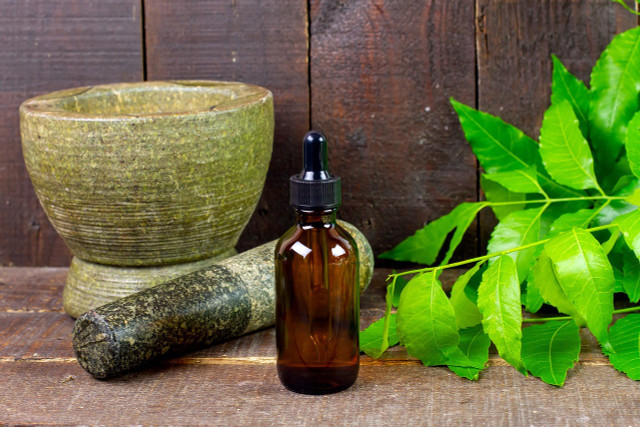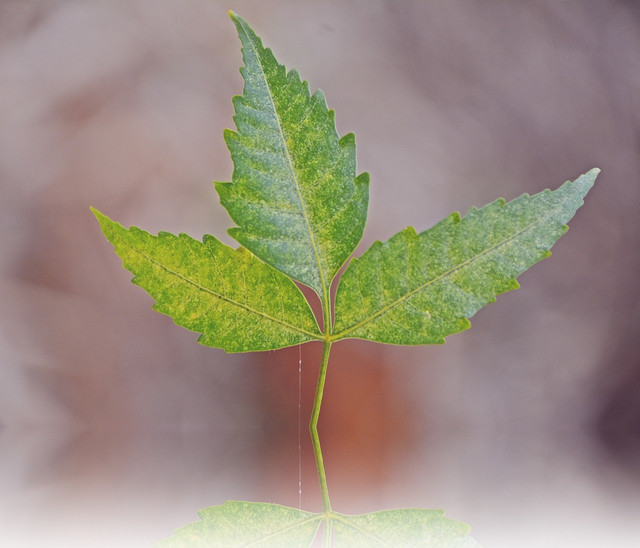Neem tea has many benefits you might not be aware of. Below, we’ll take a look at this healthful herbal plant and see just what it can offer.
The neem herb, known as Azadirachta indica, is commonly grown in India and Asia. In India, neem tea’s usage dates back over 4,500 years. It was used primarily as a tonic for medicinal purposes.
Several parts of the tree are known for their medicinal properties, including the fruit, seeds, roots, leaves and oils. These parts of the plant have significant antioxidant properties. However, these days people use neem in many ways — including as a natural remedy.
- To discover Utopia’s natural remedies and learn more, click here.
One of the most common ways to consume the herb is by drinking neem tea, made from the plant’s harvested and dried leaves.
So, what are the benefits of drinking neem tea? Below, we’ll look at the advantages of this tasty, fragrant hot beverage. Read on to see if it’s the drink for you.
What Are the Benefits of Neem Tea?

Throughout its history, the neem plant has been valued for its medicinal and anti-inflammatory properties. That said, what else is it good for?
Here are some of the biggest benefits of neem tea:
- Active compounds: Many active compounds found in the neem plant boast antiparasitic, antioxidant, antimicrobial, antidiabetic, anti-inflammatory and wound-healing properties.
- Reduced dandruff: The anti-inflammatory and antimicrobial properties in neem oil may help reduce fungal build-up on the scalp, which can also avoid dandruff.
- Dental health: Studies suggest that neem helps treat tooth decay, gingivitis and periodontitis. It may also reduce plaque build-up.
- Improved skin: Neem oil may help to improve acne, thanks to its antibacterial properties. It also may also boost ulcer and wound healing, with studies suggesting the extract produces better inflammatory responses.
- Lice treatment: Neem seed oil extract shampoo could be a potential treatment for hair lice.
While research into this plant is ongoing, it already has plenty of potential and longstanding benefits.
How to Make Neem Tea



Brewing a cup of neem tea is easy. Follow these simple instructions:
- Add five dry neem tea leaves to a cup. Add more if you like your tea strong, and less if you prefer it on the gentle side.
- Pour boiling water over the leaves.
- Let it steep for 5 minutes before adding ice. A study has shown that this method of steeping gives you the greatest possible benefits, as it helps release antioxidants.
Things to Keep in Mind



While neem tea boasts many advantages, there are also some risks to be aware of. So, what should you keep in mind with neem tea?
Here are the most important points:
- Reproduction: Some studies show that neem could impact fertility in men. It is best to avoid neem or consult a medical practitioner if you think this might concern you.
- Application methods: Applying neem directly on the skin without diluting it may be irritating. When using it in oil form or another liquid medium, you should always perform a patch test first to be safe.
- Taste: If you don’t like the bitter taste of the tea, try drinking it cold with a little bit of fruit juice. You can mix it with other teas.
- Consumption: You should not directly consume neem oil. It can cause negative side effects like drowsiness and diarrhea.
If you are pregnant, recently had an organ transplant or have an upcoming surgery, you should not consume neem tea. It can interfere with blood sugar control. If you want to try it, consult with your doctor about what the best options are.
When in doubt, brew up some delicious ginger and garlic tea or green tea, both of which contain plenty of good-for-you ingredients.
On the last note: do your best to purchase certified organic tea brands. Certified brands are free from herbicides, and pesticides, making them better for you and the planet.
Read more:
- Yellow Tea: Benefits and Uses of the Rare Tea Type
- Is Chai Tea Good For You? What You Need to Know
- Decaf Green Tea: 4 Benefits for Your Health
Do you like this post?






